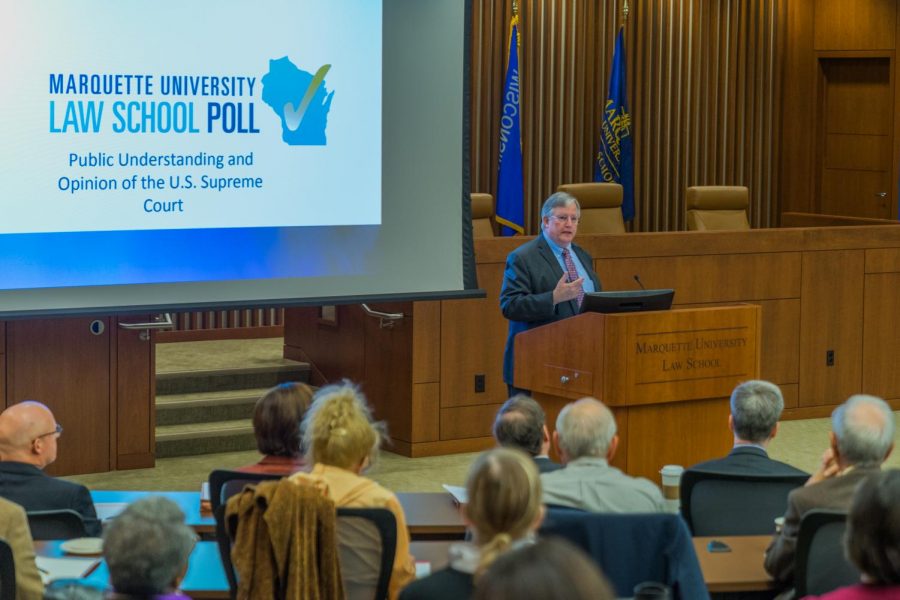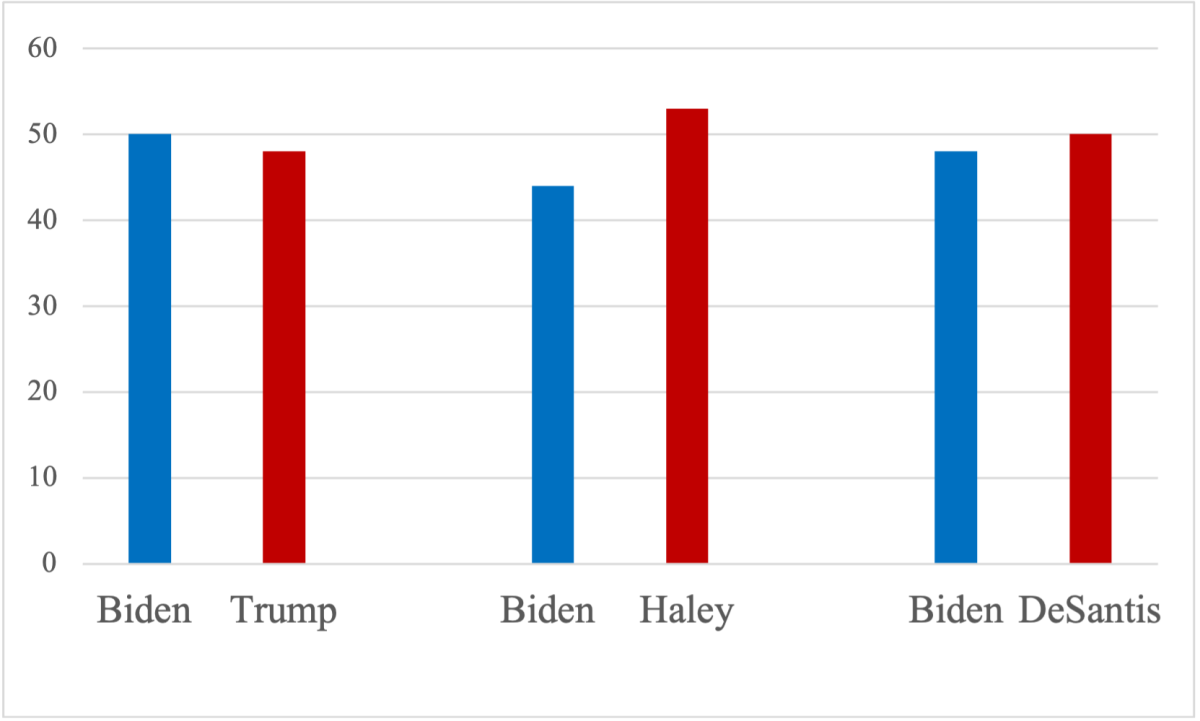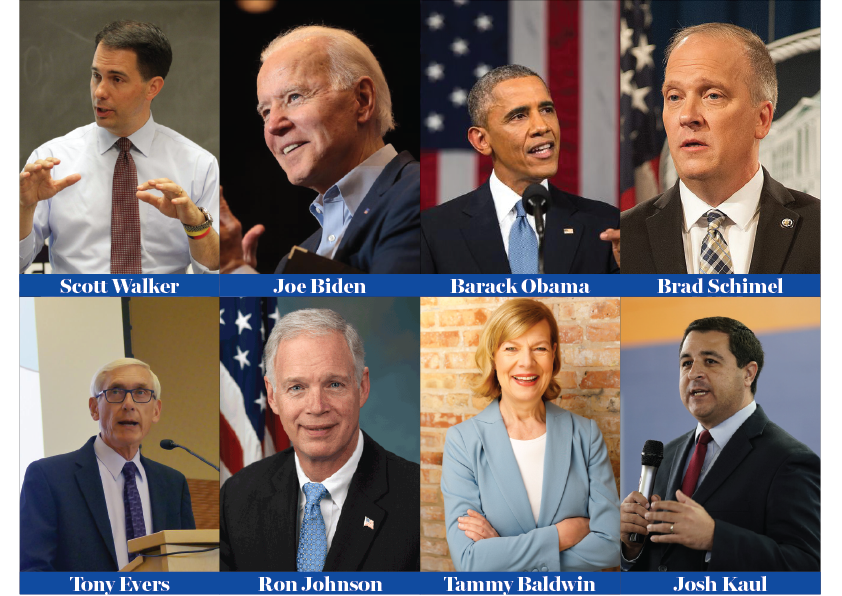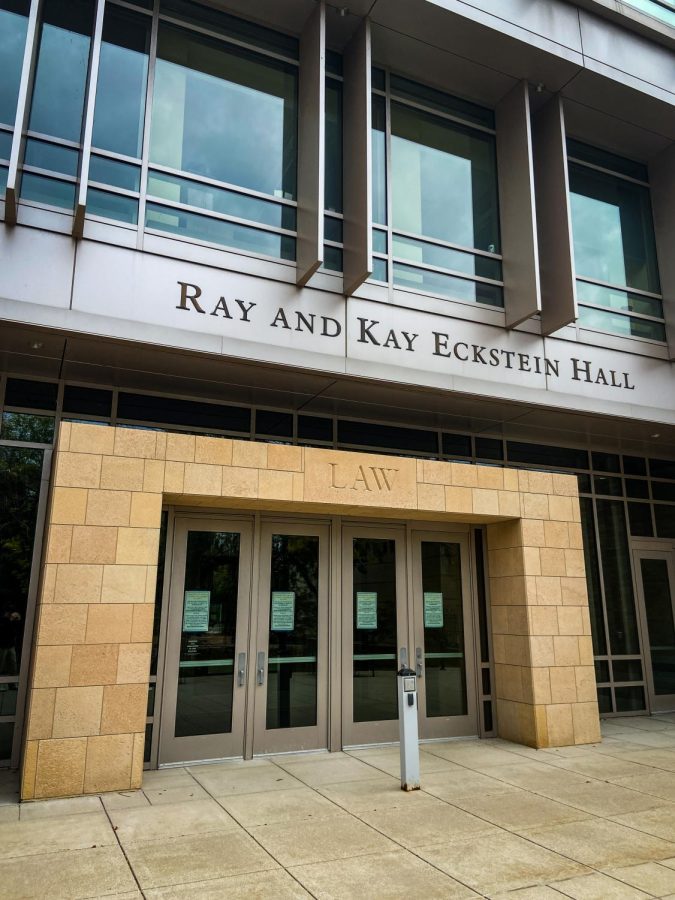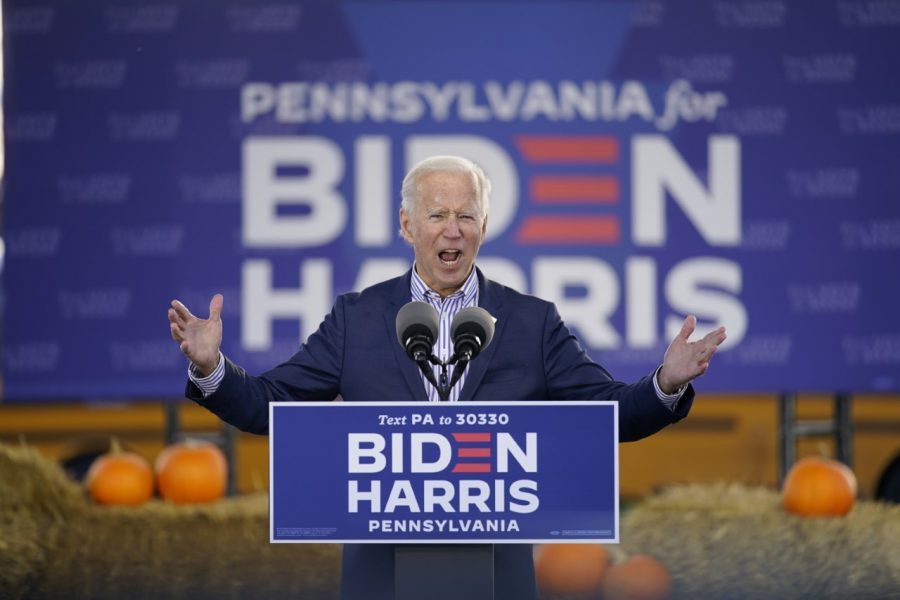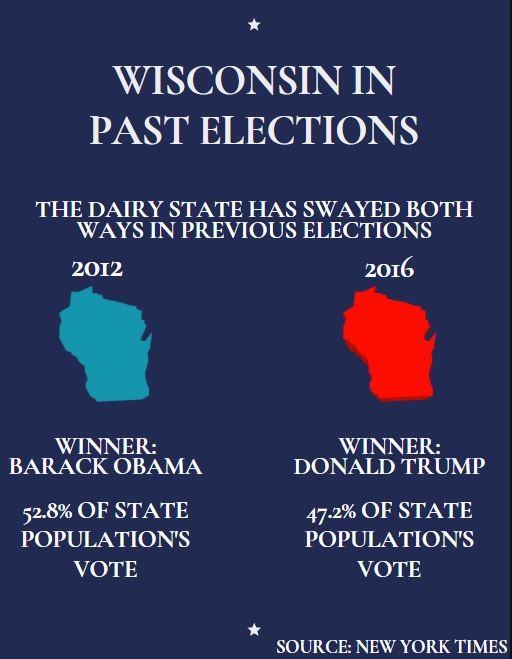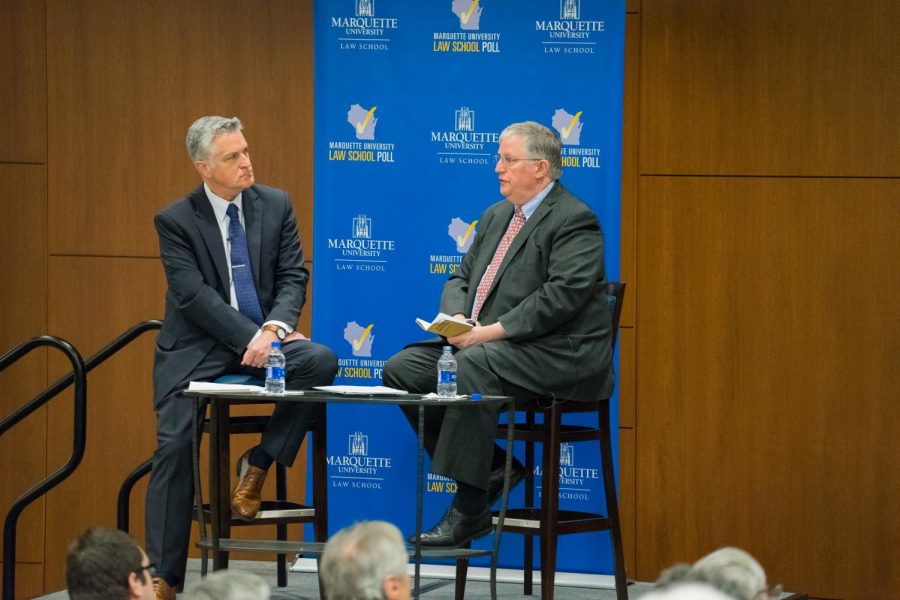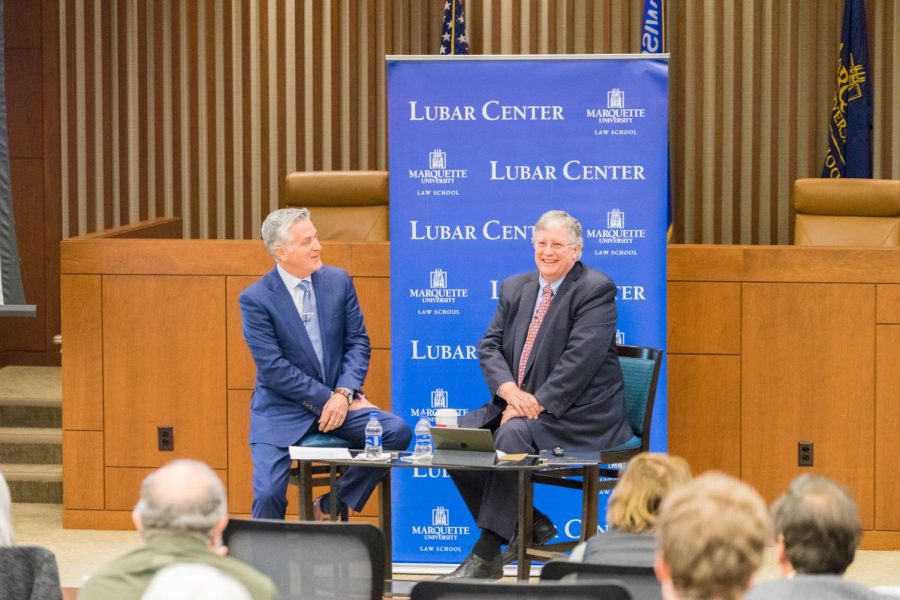Marquette University Law School recently made history with its first ever national poll. The poll, which included interviews from over a thousand adults across all 50 states, examined public perceptions of the U.S. Supreme Court.
The results were released and explained in a conference Monday at Eckstein Hall by Law School poll director Charles Franklin, alongside moderator and senior fellow Mike Gousha.
“We set out to find out how little or how much the public knows about the court and its decisions,” Franklin said.
The poll evaluates the depth of knowledge the average citizen has regarding the Supreme Court.
The poll also reports public opinion toward various court appointments, institutional change and past and potential rulings.
“The poll seems, to me, extraordinary,” Joseph Kearny, dean of the Law School, said. “It is exclusively dedicated to measuring the opinion of the third branch of our federal government and ranges broadly indeed.”
In terms of public confidence, the poll reveals that of the three federal branches, people have the most faith in the judicial system, with 80% of people interviewed being at least somewhat confident in the ability of the Supreme Court.
Regarding the perceived ideology of the Supreme Court, the poll found half of Americans believe the court to be moderate in terms of political standing, 39% believe it has a conservative leaning and 12% think the court leans liberally.
However, individuals who pay attention to politics are more likely to view the court as conservative than those who said they do not.
Concerning the next appointment to the Supreme Court, 47% think the matter is very important. This percentage increases among those who pay high attention to politics to 70%.
With respect to institutional changes, a majority of 57% oppose increasing the number of justices on the court while a distinguished majority of 72% supported fixed terms for justices.
The poll also examined public opinion toward former and potential rulings, including but not limited to corporate political spending, the use of race in admissions, partisan gerrymandering, same-sex marriage, the overturn of Roe v. Wade, the discontinuation of the Affordable Care Act, ending the Deferred Action for Childhood Arrivals program and public funding to private, religious school students.
As far as understanding of the Supreme Court is concerned, the public lacks knowledge in crucial areas. Over a third of Americans cannot name more than one Supreme Court justice and nearly half of Americans cannot identify the Bill of Rights as the first ten amendments.
Americans, according to polling results, do recognize and understand the practice of judicial review.
Franklin talked about the problem surrounding awareness of the Supreme Court or lack thereof at the conference Monday.
“In the end, I think the core of the issue … is that the real work of the court is inaccessible to those not trained in the law yet a republic rest on the consent and to some degree, the understanding of the public,” Franklin said.
The poll shows the public cares deeply about the dealings of the Supreme Court despite a fundamental lack of legal literacy.
Assistant dean of academic affairs and conference guest Nadelle Grossman elaborated on this notion.
“It’s eye-opening because (the poll) reveals that the public really cares about the Supreme Court not for the process of law-making but because of the outcomes,” Grossman said.
Anne Louise Mittal, a graduate of the Marquette Law School and local attorney with Foley & Lardner, attended the conference out of personal interest.
“I had an idea of what the public perception (of the Supreme Court) may be from the media but I thought a true statistical analysis would be very useful,” Mittal said.

